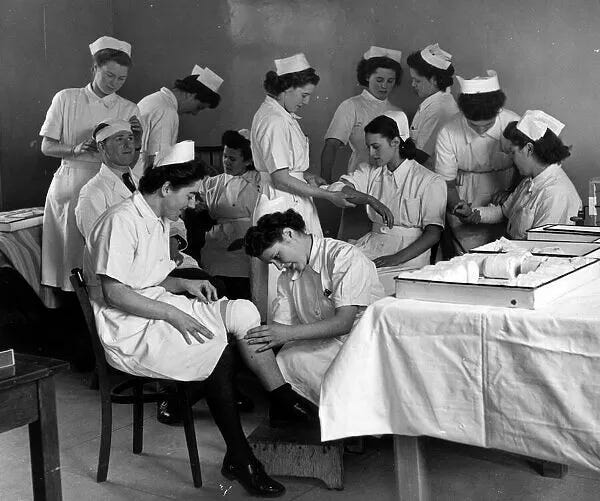I was chatting to a research doctor the other day about vocations and she told me once she was teaching a clever student and made the mistake of asking him why he wanted to be a nurse rather than a doctor. He was offended by the question; it never occurred to him to be a doctor. Being a nurse wasn’t to be a failed doctor. It was a vocation in itself. He remembered as a child a nurse helping his mother; from that moment he decided he wanted to be a nurse. Nothing would deflect him from this course.
In every town, in every city in the world there are hospitals, and these hospitals are full of nurses who do a devoted job. From the conversations I’ve had with the nurses with whom I now spend most of my days, and some of my nights – not having known any before – they consider their work to be a vocation. They dress and undress me, wash my body, genitals and ass, cleaning every part of me, and brush my hair; and of course this is their everyday work. They also are very skilled in all kinds of ways. It’s technical, and not an easy job.
Keep reading with a 7-day free trial
Subscribe to THE KUREISHI CHRONICLES to keep reading this post and get 7 days of free access to the full post archives.




